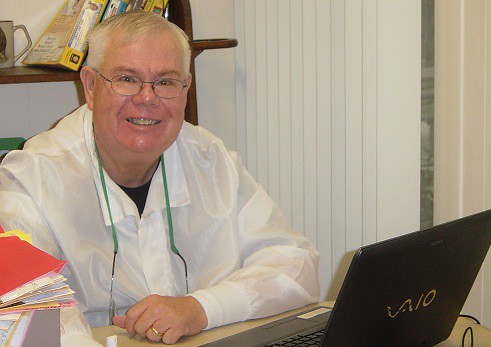
Good Monday morning!
On to today's dentistry and health headlines:
Dentist admits filing false Medicaid reports
Ill. man bilks Medicaid of $2M for erectile pumps
California sets trends in health regulation
Alzheimer's Families Clamor for Drug
On to today's dentistry and health headlines:
Dentist admits filing false Medicaid reports
Prominent Wilmington dentist Marieve Rodriguez admitted to 10 misdemeanor counts of filing false Medicaid reports today in exchange for state prosecutors dropping 19 felony counts of health care fraud.
In addition Rodriguez, who operates Gentle Care Family Dentistry on Gilpin Avenue, will pay a $100,000 fine, repay $72,000 to the state’s Medicaid program and $50,000 to cover the costs of prosecution.
She also agreed to have her license to practice medicine suspended for a year and to not participate in the state’s Medicaid program -- should she get her license back -- for at least five years.
By admitting to the 10 misdemeanor charges, Rodriguez faces up to 10 years in prison, but prosecutor Kathleen Vavala is only recommending one year of home confinement as part of the deal.
Judge John A. Parkins Jr. set sentencing for June 20.
Ill. man bilks Medicaid of $2M for erectile pumps
An Illinois man was sentenced Friday by a federal judge in Rhode Island to more than three years in prison for shipping unwanted penis enlargers to diabetes patients as part of a larger fraud scheme that prosecutors say bilked $2.2 million from Medicare over four years.
Gary Winner, 50, of Wheeling, Ill., must also forfeit more than $2.2 million that prosecutors say Medicare lost because of the plot.
U.S. District Court Judge William E. Smith also ordered Winner to pay a $12,500 fine and serve three years of supervised release following his prison sentence.
Lawyers for Winner had sought a maximum sentence of 1 ½ years. The guidelines for determining Winner’s punishment recommended he get a prison term between just under six years and a little more than seven years. Winner’s attorneys argued that punishment was too harsh, according to court papers.
Winner’s attorneys also asked that his emotional problems and difficult childhood, including physical and psychological abuse at his father’s hands, be taken into consideration, court papers show.
Prosecutors sought a prison term at the low end of the range that Winner was facing. He pleaded guilty in November to two counts of health care fraud, the introduction of an adulterated and misbranded medical device into interstate commerce and money laundering. He faced up to 33 years in prison.
California sets trends in health regulation
Beyond skateboards, Silicon Valley and hippies, California has a trendsetting streak of a different kind.
The state has been first to pass major public health initiatives that have spread throughout the country. California was first to require smog checks for clean air, pass anti-tobacco initiatives and bike helmets laws.
While these laws were met with skepticism and ridicule, they've often become standard practice in other states. The Golden State was first to ban smoking in workplaces, bars and restaurants in 1998. Now similar rules exist throughout the country.
Some advocates tout the state as a forward-thinking vanguard in which its health and safety laws are routinely emulated by other states.
"There have been progressive legislations in tobacco, environment and obesity prevention," said Mark Horton, a lecturer at the University of California Berkeley School of Public Health. "In some respect, the rest of the country looks to California as a laboratory for moving forward with those various types of initiatives."
But some critics liken the Golden State to a nanny state. California has 151,002 health and safety laws.
Alzheimer's Families Clamor for Drug
In the wake of research suggesting a skin-cancer drug may have benefits in treating Alzheimer's disease, physicians and advocacy groups are getting a flurry of calls from patients seeking to use the drug off-label.
The clamor underscores how urgently patients want solutions to the rising tide of Alzheimer's. But experts caution that more research is needed to determine whether the drug, bexarotene, is effective in humans at all, not to mention what the dosage should be.
The study, published Thursday in the journal Science, was conducted in mice, and the road to an effective Alzheimer's treatment is littered with failures that looked promising early on in animals.
"The Alzheimer's community is very desperate for anything that shows any sign of hope or promise," said Eric Hall, chief executive of the Alzheimer's Foundation of America, a New York-based advocacy organization that started to field calls from consumers as soon as the paper was published.
While Mr. Hall said he was "cautiously optimistic" about the drug, which appears to clear a sticky substance called amyloid from the brains of Alzheimer's mice, "I don't think people should be taking this in their own hands or running to it," he said.
Sam Gandy, a neurology professor at Mount Sinai School of Medicine and associate director of its Alzheimer's Disease Research Center, said he wasn't surprised to get inquiries from patients about bexarotene, as they also often ask for off-label use of another treatment on the market, intravenous immunoglobulin, which costs about $50,000 a year and is given in time-consuming infusions.
Enjoy your morning!
No comments:
Post a Comment